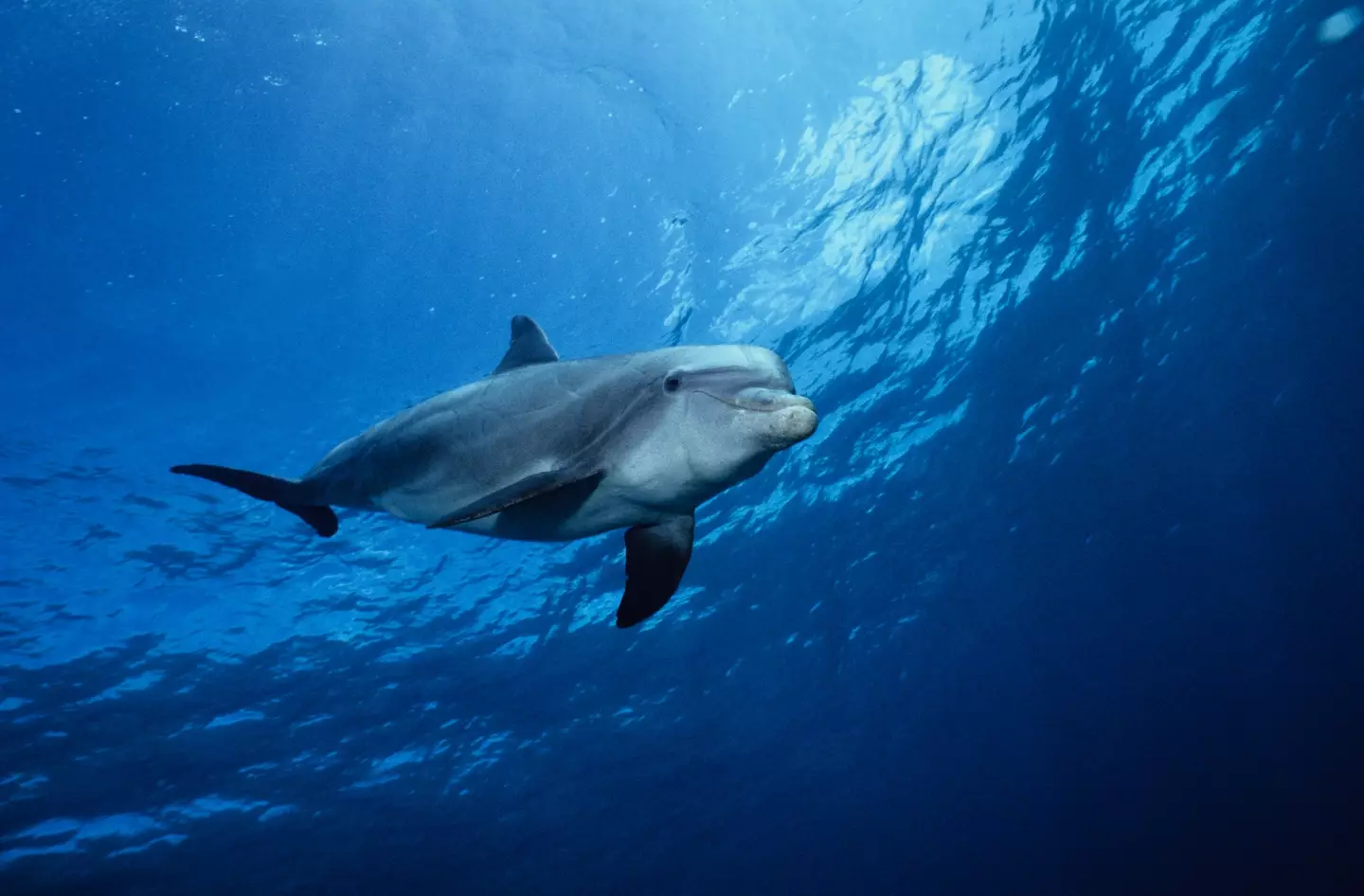
As well as being super smart, great swimmers and generally cool animals, bottlenose dolphins have another thing going for them: a seventh sense.
Most of us use all of our senses every day, but since it might have been a while since you've been in science class, allow me to remind you of the big five.
We have taste, touch, smell, hearing and sight, and they all have their part to play. After all, what's a good meal if you can't take in how good it looks, or enjoy the aromas making your mouth water first?
Advert
These five senses are obviously enough for us, but bottlenose dolphins have proved their superiority over humans by throwing in an additional sense.
Scientists had previously found that dolphins have a line of sensitive pores on their snouts - known as vibrissal crypts - which are rich in nerve endings, making them extremely sensitive.
In 2022, a study found that the holes allow them to detect weak electric fields in water.
However, scientists initially no idea just how weak those fields could be.
That was, until researchers at the University of Rostock and Nuremberg Zoo in Germany, conducted an experiment on two captive dolphins named Dolly and Donna.

The dolphins were trained to rest their snouts against a metal bar with electrodes in the water, after which they were provided with a randomly generated stimulus -
either an electrical stimulus, or nothing at all.
Using the tasty snack of fish to help teach the dolphins, the creatures learned to swim away from the bar if they sensed something, but stay put if they didn't feel any stimulus.
The experiment found that the dolphins could use the holes on their snouts to sense electric fields as weak as 2.4 and 5.5 microvolts per centimeter.
While dolphins are not as sensitive to electric fields as sharks and rays, they are capable of similarly using electroreception to detect weak electric fields from the bodies of their prey when hunting, scientists found.
.jpg)
Discussing the findings, lead researcher Guido Dehnhardt said: "The sensitivity to weak electric fields helps a dolphin search for fish hidden in sediment over the last few centimetres before snapping them up."
He also believes that dolphins' ability to sense electricity can help them in other areas, for example in orientating themselves in relation to the Earth’s magnetic field.
I think it's safe to say dolphins have some good sense!
